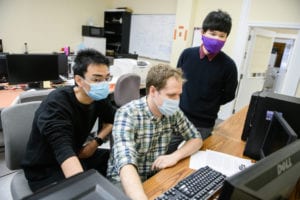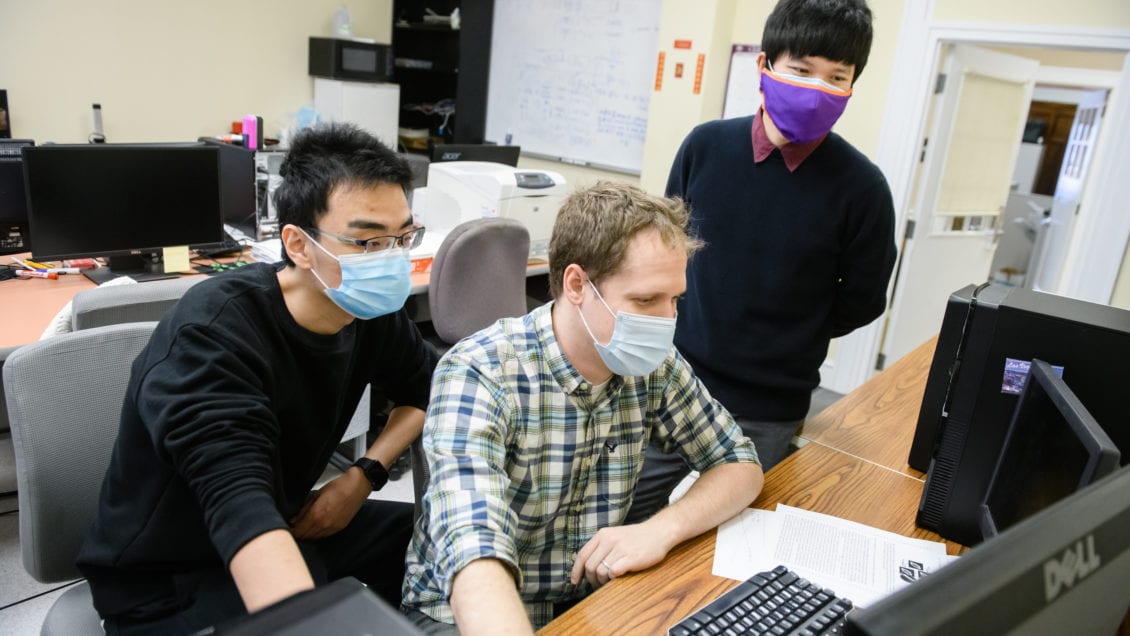Clemson University is adding to its portfolio of artificial intelligence research with a new project aimed at protecting next-generation AI systems from attacks without sacrificing the systems’ performance, accuracy or complexity.
The new project is led by Yingjie Lao, an assistant professor in the Holcombe Department of Electrical and Computer Engineering. A $500,000 CAREER award from the National Science Foundation is funding the research.
Lao said much of the progress in AI-related cybersecurity has been in making algorithms more robust, but his research will also address hardware vulnerabilities, helping develop strategies to defend against attacks.
The work, he said, is aimed at shoring up confidence in technology and could have commercial and national-defense applications. Lao also plans to expand a graduate course to help promote the importance of AI security.

The CAREER-award project is among several AI-related research projects Lao and his students are conducting.
“We’re working on cutting-edge technologies and interesting problems,” he said. “We feel we have pretty good ideas and very clear directions to work on. Not only am I excited, I think the students are also excited to work on these projects.”
Among those students is Joseph Clements, who is pursuing his Ph.D. under Lao. The CAREER award research will give him an opportunity to advance his research in adversarial machine learning, helping set him up for jobs after graduation, he said.
“It will definitely be a great experience,” Clements said. “Machine learning in general is growing a lot recently, and I think it will be moving into a lot of different fields. We’re using these machine learning systems in medical systems, autonomous driving systems and things of that nature– and these have a lot of security implications.”
Lao said the CAREER award research could spur advances in a broad range of sectors, including healthcare, autonomous vehicles, and Internet of Things. It could help open new uses for AI in mobile and edge devices, he said.
Hai Xiao, chair of the Holcombe Department of Electrical Engineering, said CAREER awards are among the nation’s highest honors for junior faculty members.
“CAREER awards go to faculty members who are early in their careers and exemplify the role of teacher-scholar,” Xiao said. “Dr. Lao richly deserves this honor, and I offer him my full congratulations.”
Also as part of the CAREER award, Lao is planning to expand a course for graduate students and senior undergraduates that currently runs one semester and focuses on hardware and artificial intelligence. He will add a section and make it a two-semester course, with the second semester devoted to hands-on lab activities.
Two graduate students and one undergraduate will assist him with the CAREER award project, Lao said.
“This is a really new topic, and they can really learn a lot,” he said. “It’s an interesting and very competitive area for them to work.”
Bingyin Zhao, a Ph.D. student in Lao’s lab, said it is an honor to work with him.
“He is giving us an opportunity to work on cutting-edge research,” Zhao said. “One of the most important benefits we can get from this award is that we can do some really impactful work, and maybe people can use our results to improve their research or industry work.”
Get in touch and we will connect you with the author or another expert.
Or email us at news@clemson.edu

